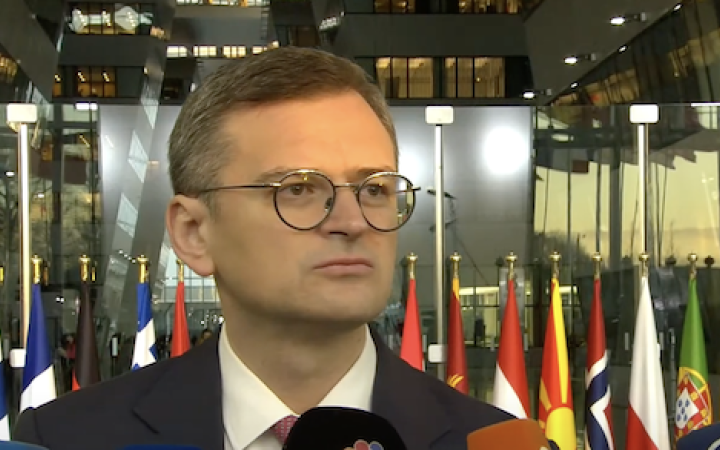On 29 November, the first meeting of the NATO-Ukraine Council at the level of foreign ministers took place in Brussels. Ukrainian Foreign Minister Dmytro Kuleba thanked all allies for their continued support, but stressed that assistance should be extended. He said this at a briefing on the sidelines of the event.
"We have to continue. We have to fight. Ukraine is not going to give up," he said.
Kuleba reminded that Ukraine's goal is to restore the territory to its internationally recognised 1991 borders, and "nothing will stop us".
Asked whether Kuleba felt fully supported amid the refusal to supply arms from Slovakia and the stalling of new US aid, the minister said that problems would be solved when they arose.
"When there is a real problem, we solve it," the foreign minister said, adding that "politics is politics."
Kuleba noted that yesterday he met with his Slovak counterpart and they had a perfect understanding. The hub for heavy weapons for Ukraine will continue to operate in Slovakia, and contracts with Slovak arms companies remain.
"I do not see any risk in this. As for Hungary, let's wait two weeks and see how it all ends. And I hope that the US Congress will find a solution that will be best for the interests of the American people and will also support both Ukraine and Israel in the current circumstances," the minister added, stressing that the best way to avoid sending your army to other countries is to help the army of the country where there is a war.
Kuleba stressed that Ukraine has never asked for help from other countries' armed forces, but only for weapons for its own.
When asked whether the war had reached a stalemate (as previously stated by Chief of Staff Valeriy Zaluzhnyy), Kuleba said that "there is no deadlock".
Secretary General Jens Stoltenberg, for his part, said that today's event shows that Ukraine is getting closer and closer to NATO. He added that solidarity with Ukraine is manifested not only in words, but also in actions, such as additional military support.
The NATO-Ukraine Council replaced the commission whose meetings had been blocked by Hungary for years. The event is taking place in parallel with the NATO summit at the level of the Foreign Ministries in Brussels. Based on the results of the event, NATO is expected to provide Ukraine with a list of reforms to be implemented before accession.








